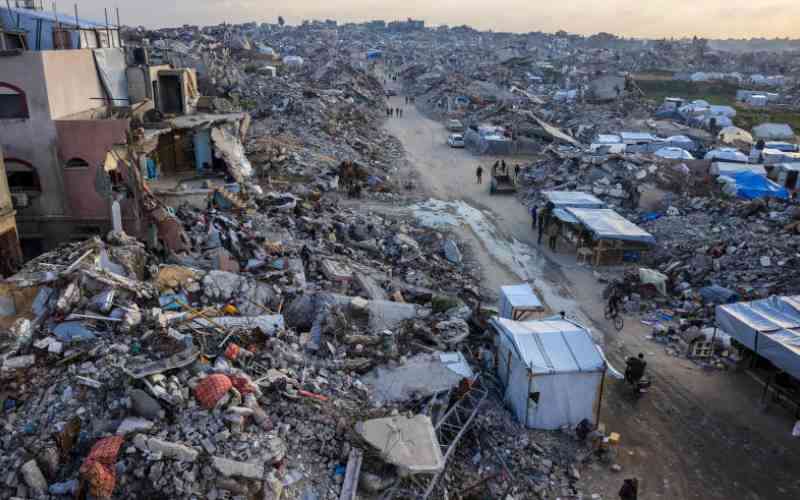×
The Standard e-Paper
Smart Minds Choose Us

Palestinians walk amid the rubble of buildings in Beit Lahia in the northern Gaza Strip on March 4, 2025. [AFP]
"... And they shall beat their swords into ploughshares, and their spears into pruning hooks; nation shall not lift up sword against nation, neither shall they learn war anymore." - Isaiah 2:4.